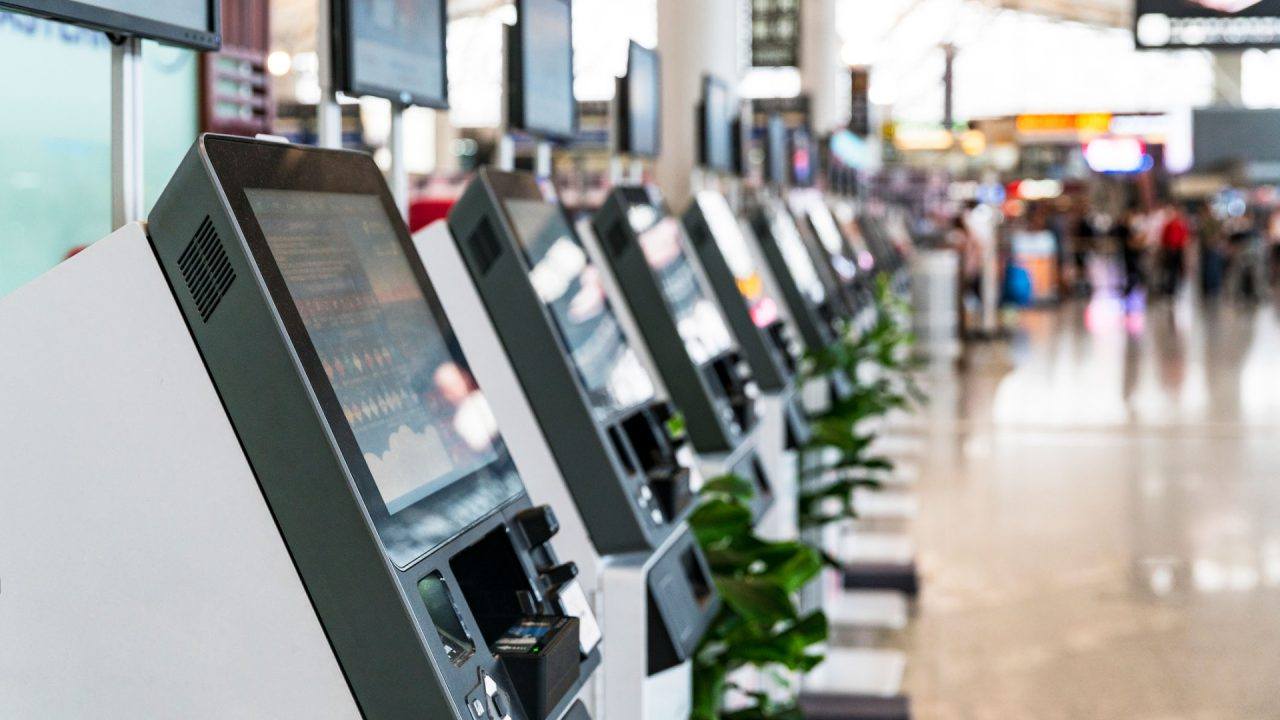Christmas shoppers have been warned of potential dangers lurking on self-service screens and handrails as the festive season gets under way.
A recent public health study found thousands of bacteria living on self-checkout scanners – including those normally associated with faeces.
Microbes that are commonly found in the intestines and can lead to urinary tract infections (UTIs) were also discovered on swabs taken at self-service points across a number of UK stores as part of the project.
The Champs Public Health Collaborative is now calling on people to take extra care to protect themselves and others as we prepare for the annual spike of winter illnesses such as norovirus and flu.
As part of the experiment, scientists analysed 19 swabs from a range of other everyday objects such as escalator handrails, public toilet door handles, as well as office computer keyboards, pets and pet toys.
Following examination, the samples revealed thousands of bacteria, including E. coli, a bacteria that can lead to a range of gastro-intestinal illnesses, being present on almost all objects investigated.
A bug commonly found in the vagina, mouth, throat and gut called Candida albicans, which has the potential to cause a yeast infection, was discovered on an escalator handrail, while intestinal microbes that can cause a range of infections in humans, including UTIs were found on computer keyboards.
Dr Adam Roberts, one of the chief researchers within the Infection Innovation Consortium (iiCON), which is led by the Liverpool School of Tropical Medicine (LSTM), produced the analysis of the bacteria.
He said: “We live in a bacterial world – bacteria and microbes are everywhere, and we come into contact with them all day, every day.
“It’s vital to try to minimise their effects in terms of infection prevention and control, so when we touch our mouths or go to the toilet and don’t wash our hands, we’ve likely got bacteria from these places on our hands which can then transfer to other things – and subsequently to other people.
“If those individuals are more susceptible to infection than you are, there may be a problem.
“The self-checkout samples had one of the highest bacterial loads, as we found five different types of potential disease-causing bacteria surviving on them. This included Enterococcus which is found in human faeces and, while this is usually harmless, it can of course lead to disease, particularly in those who may have weakened immune systems.
“We found multiple examples of E. coli and a bacteria called Klebsiella on computer keyboards. While both exist naturally in faeces and intestines, given the right environment, they are able to cause quite severe diseases in humans, so it’s vital that we wash our hands before and after eating when working at the computer.”
Follow STV News on WhatsApp
Scan the QR code on your mobile device for all the latest news from around the country


 iStock
iStock
























